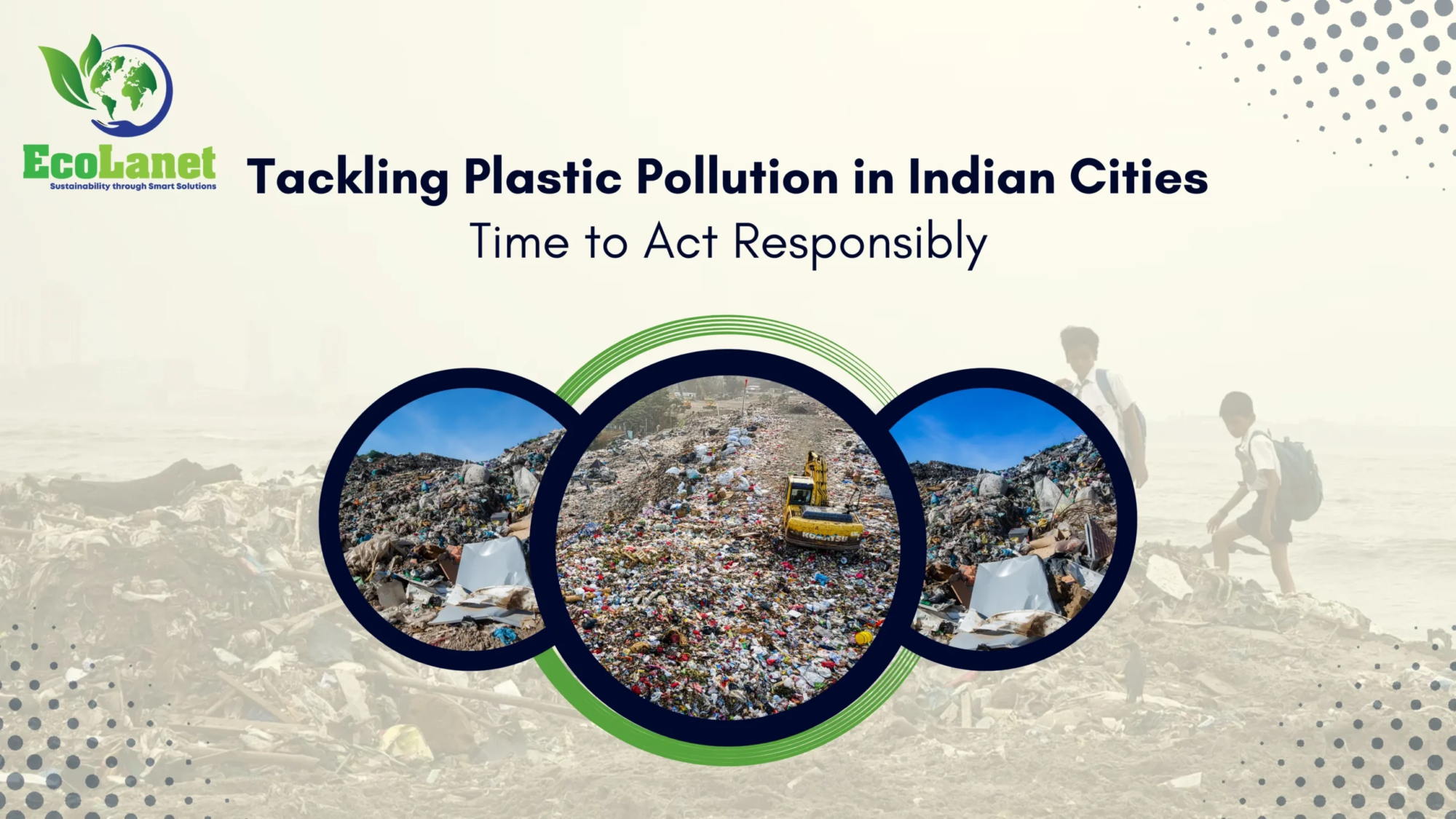Plastic pollution has become an increasingly urgent environmental issue, especially in urban areas where improper disposal practices worsen the crisis. Let’s dive into the consequences of plastic waste and what we can do to create a cleaner, more sustainable future.
The Growing Plastic Problem
Plastic is everywhere in modern life, from packaging to daily-use items. However, the environmental footprint of plastic is staggering, as improper disposal results in harmful effects on soil, waterways, and even marine life. Chlorinated plastics pollute the land and oceans, threatening animals and entire ecosystems. In India, plastics make up approximately 8.9% of municipal waste. With no simple solution to replace plastics, managing this waste responsibly is critical.
Key Environmental Impacts
- Land Pollution: Plastics degrade soil quality, blocking plant growth and reducing the soil’s natural productivity. Soil contaminated by plastics contributes to deforestation and global warming as vegetative cover shrinks.
- Water Pollution: Discarded plastic enters rivers and oceans, affecting marine species and contaminating drinking water sources. Microplastics are a significant threat to aquatic life and can even end up in the human food chain.
- Health Risks: Plastics in our environment degrade into toxic particles, potentially causing respiratory issues and skin irritations, and even entering the body through food packaging.
Steps Toward Better Plastic Management
The good news is that we can mitigate plastic pollution by adopting thoughtful strategies for waste reduction and management.
- Reduce Plastic Usage: Minimize plastic consumption by using alternatives like paper and cloth bags. Governments can play a role by imposing higher taxes on single-use plastics and encouraging eco friendly products.
- Enforce Stricter Laws: Countries can enact laws to restrict the use of single-use plastics and impose penalties on public littering. A combination of stringent regulation and public awareness campaigns can greatly reduce plastic waste.
- Implement Proper Waste Segregation: Distinguishing between biodegradable and non biodegradable waste at the household level is essential for effective disposal. By separating plastic from organic waste, we can increase recycling rates and reduce environmental impact.
- Innovative Recycling Solutions: Technologies like Japan’s “Blest Machine” offer a promising solution by converting certain plastics into oil. These machines break down plastic components safely, capturing gases and converting them into less harmful byproducts. Such solutions can be particularly beneficial in large-scale waste management.
A Call to Action
The current state of plastic pollution demands urgent action from all of us—individuals, communities, and governments. Let’s collectively work to minimize plastic waste, make mindful disposal choices, and prioritize environmentally friendly habits. Our choices today can ensure a cleaner, greener planet for generations to come.




Add a Comment